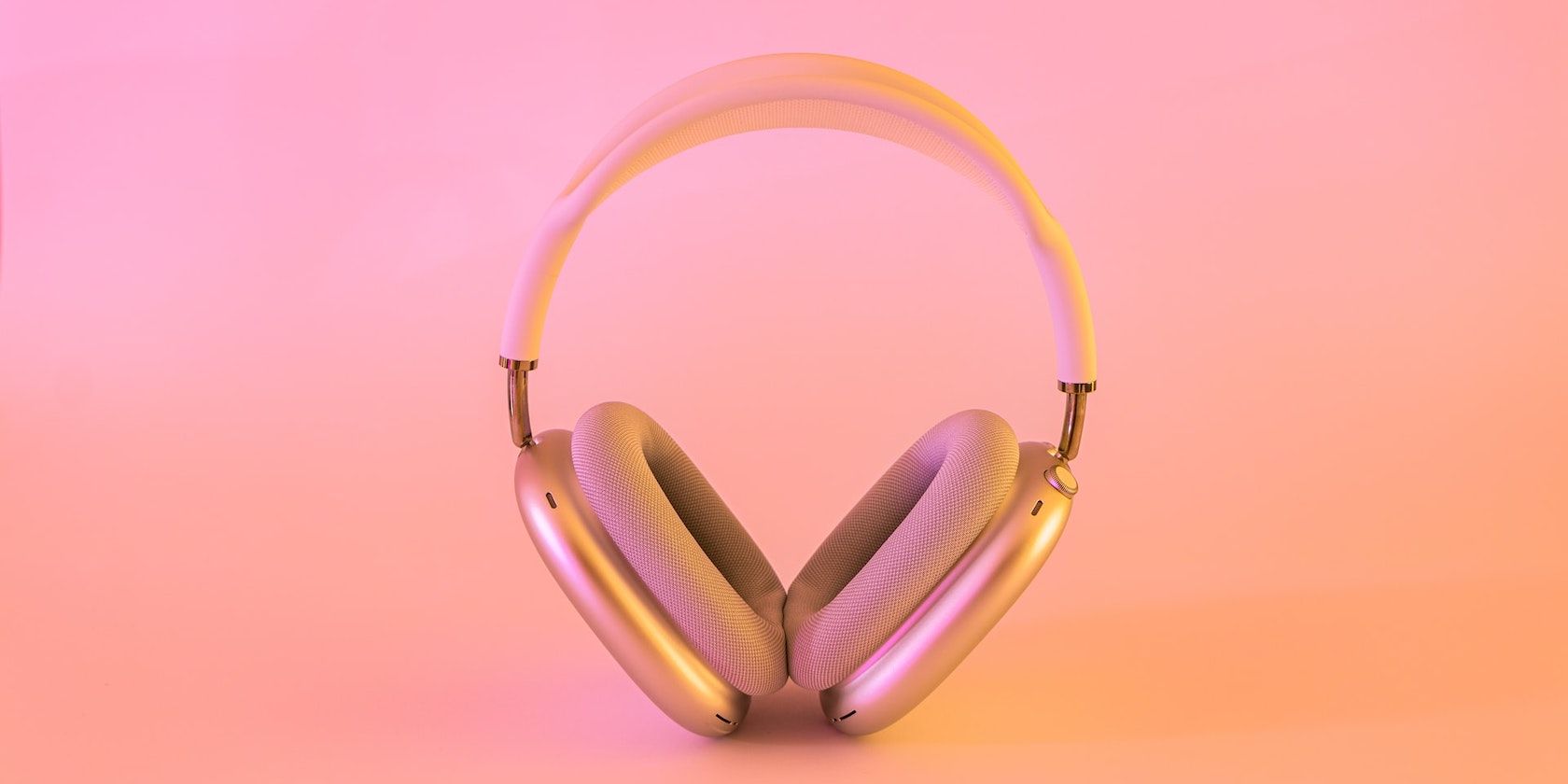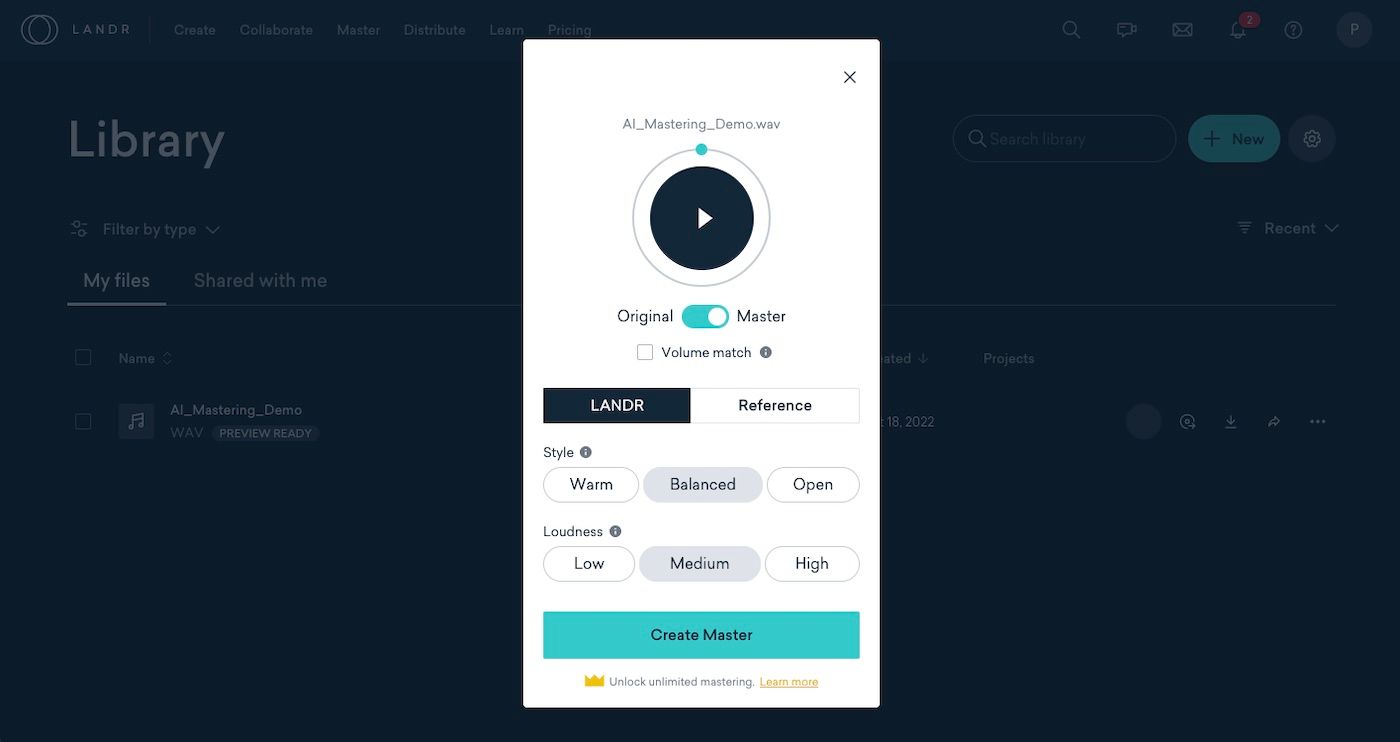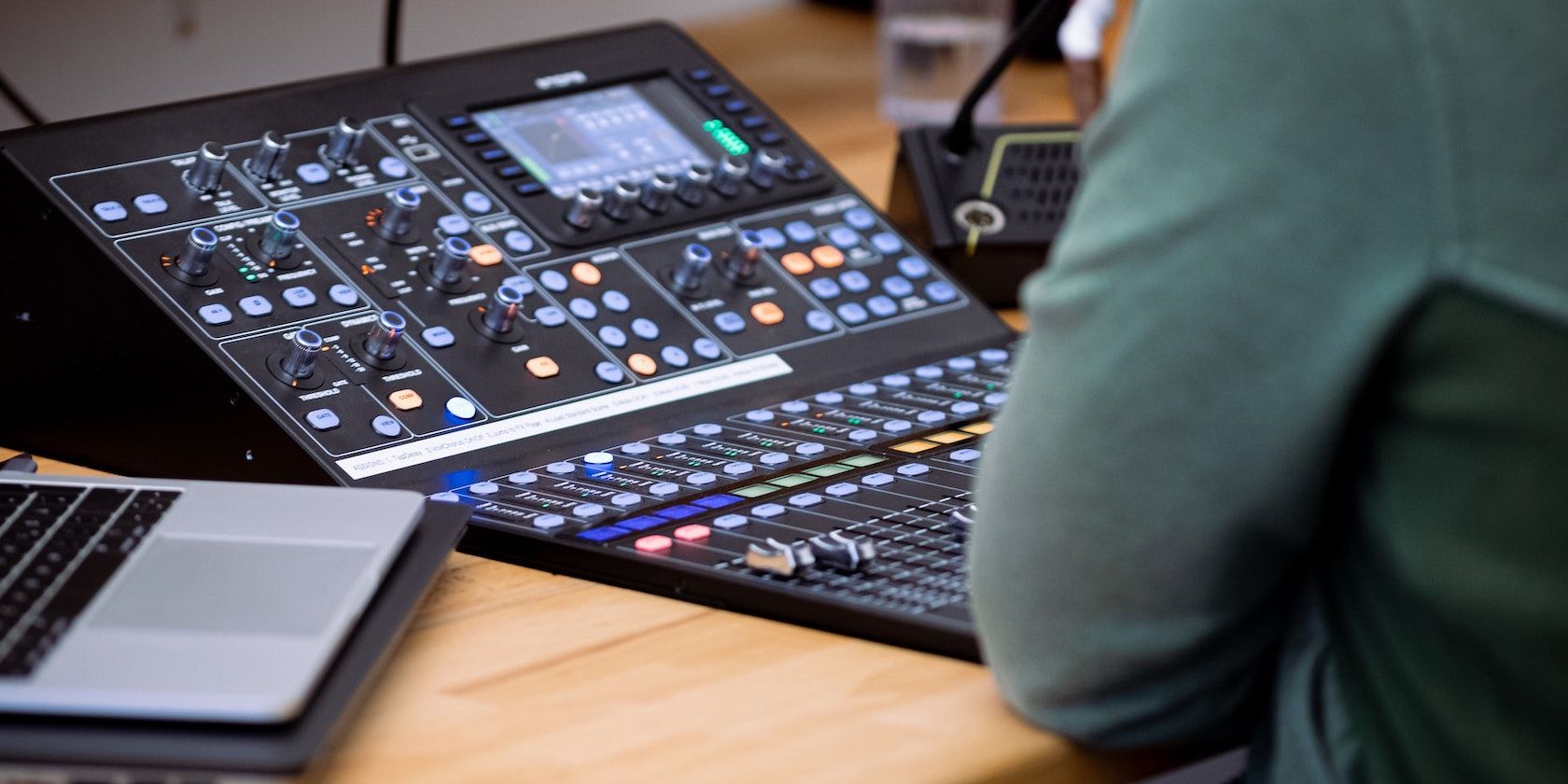It's a careful calculation of money, time, and skills when it comes to deciding whether to master your own music or use an AI mastering service. While AI technology is developing rapidly, the results still don't compare to how a human does it. However, in some cases, they can be a cheap and easy alternative, especially if you have no mastering skills yourself.
To help you decide which path to take, we're going to explain what's really involved in mastering a song, and help you decide what option suits you best.
How Does AI Mastering Work?
AI mastering uses machine learning to analyze audio and then make decisions about equalization (EQ), audio limiting, and stereo width, among other things.
The goal is to produce a track that is ready to be distributed and heard by your audience. This includes getting the track ready to comply with industry standards by exporting it in the right file format and setting the correct loudness level.
If you don't know how to master music, or simply don't want to, you can get your track out there in no time using AI mastering services. They are one of many impressive AI music tools worth checking out.
It's Quick and Easy
AI mastering is simple and fast, and that's what is attractive about a mastering service like LANDR. Simply drag and drop a track into the software, and you can have a master completed in less than 10 minutes.
Mastering by a human is also relatively quick, but you still need a few days to contact an engineer, send the track to them, then get it back.
Upfront, the cost of AI mastering can be cheaper too. A single master using LANDR costs $10, or you can opt for a yearly subscription that includes many other tools and services for $149.99 a year.
If you're getting plenty of tracks mastered, and frequently, then the cost is cheaper than paying for a mastering session. It's an affordable tool if you're just starting out and want to build a digital music career.
Setting aside the debate over the quality of mastering, there are some situations where speed is a benefit. You could use it to quickly polish up a demo before sharing it or for last-minute additions to a live set, whether it's a single stem or a track you want to DJ.
The Downsides of AI Mastering
Side-by-side comparisons show that you just can't beat mastering done by a human. You can listen to the results yourself and see what you think.
You may also be surprised to know that tracks can sound quite different depending on which program you use.
Each company has its own machine learning algorithms that are not available to the public to look at, and the only way to know which AI program does the best job is to pay for a master from each service and do a side-by-side comparison.
Once the mastered track is in your hands, there are just a few limited settings to tweak if you're not happy with it. While the whole point is to have a painless experience, it can leave you directionless.
By contrast, you can always chat with a mastering engineer if you're unsure about the final result. There is so much you can explain to a person, like what influenced the track and what areas need particular attention.
AI mastering might be able to get the technical changes roughly correct, but there are still a lot of subjective decisions that go into making a track great. That extra 10% is what is missing from AI mastering, at least for now.
How Is Human Mastering Different?
A human engineer will master your track by changing many of the same settings such as EQ, limiting, stereo width, plus more.
The difference is that each engineer will have their own preferred plugins, audio gear, and mastering experience. Prices vary for these reasons and can start around $70 per song and go upwards of $120.
When it comes to solving problems on the fly, an engineer has the flexibility to tackle the issue since they aren't limited by a set number of parameters like an AI system.
The Human Touch
One major benefit of paying for a human engineer is the opportunity to attend a mastering session in person. Being in the studio gets you a first-hand look at exactly what they're doing to your track.
Even if you choose to go with an online mastering service, which can be more affordable, there is plenty of opportunity to ask the engineer for feedback and advice.
The extra attention to detail can make all the difference! If you're a beginner, why not save money by using free music production software, and spend it on a mastering engineer instead?
Professional mastering studios also have a lot of powerful analog gear at their disposal. Sometimes digital plugins just can't compare to the beauty of physical hardware and the unique sound they create.
Mastering is not just about making a track louder, it's a highly specialized skill that combines equal parts technical knowledge and artistic input. The added human touch has a lot to offer, including expert guidance, feedback, and learning opportunities.
The Downsides of Human Mastering
If you decide to hire someone to master your track instead, the downside is that it can take a minimum of a few days to get your track back, which may be too long to wait in some situations.
As we mentioned, the cost is also higher than using an AI mastering service and the cost of getting a whole album mastered simply isn't feasible for a lot of independent artists.
If you don't have money to burn, you might think that mastering a track on your own is a good option. On the one hand, it can save you money, but if you're an amateur, then it can do more harm than good.
Mastering is a skill that takes years to hone and in most cases, even if you have the skills, it's recommended that you get someone with fresh ears to listen to the track.
What Option Should You Choose?
At the end of the day, if time and money aren't an issue, go for a professional engineer. They can give your track that special attention to detail, so your music has the best chance of being seen and heard.
Get into a mastering studio if you can and enjoy talking to a real human about the heart and soul of your music. Then watch as they work their magic using top-shelf analog gear.
On the other hand, choose AI mastering if you want to get your music out there as quickly as possible. AI technology has come a long way, and it's a great alternative for anyone who doesn't have the money or the skills.
There's no doubt that AI mastering will continue to get better, but for now, we can appreciate how they're opening the gate for more amateur artists to produce music.
More Options for Music Mastering
Mastering is the final step in the production process and now there are more options than ever to make it over the finish line.
When it comes to quality, you just can't beat the human touch. Hiring a human engineer to master your track will get you the best results. But if you're short on either time or money, don't be afraid to try using AI.



